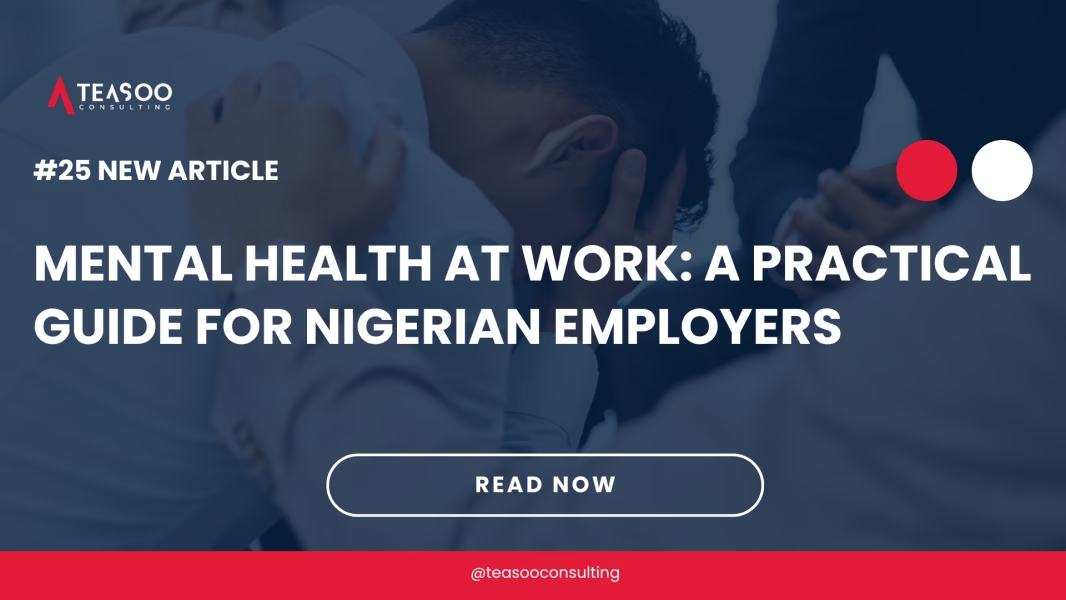
Key takeaways
- Mental health at work directly impacts productivity, retention, and overall business performance.
- Nigeria’s new Mental Health Act (2023) provides a legal framework for protecting employees.
- Experts recommend low-cost, culturally appropriate interventions that any employer can adopt.
- Practical steps include awareness training, flexible policies, and peer support systems.
Introduction: why mental health at work matters
Imagine a talented employee who shows up every day but struggles silently with stress or anxiety. Their performance dips, absenteeism rises, and eventually, the business suffers. This scenario is common in Nigeria, where the World Health Organization estimates that one in eight people globally live with a mental health condition.
Until recently, workplace mental health was rarely discussed in Nigeria. But with the Mental Health Act of 2023 repealing outdated laws, employers now have both a responsibility and an opportunity to act. “Supporting mental health at work is not charity, it’s smart business.”
What workplace mental health means
Workplace mental health refers to policies and practices that protect employees’ psychological wellbeing. It includes preventing stress, reducing stigma, and providing support for conditions like depression, anxiety, or burnout.
The Centre for Health Ethics Law and Development (CHELD) notes that a safe and supportive workplace “promotes mental health, and workers in excellent mental health perform better.”
Evidence and expert insight
- Legal framework: The Mental Health Act, 2023 ensures employees cannot be unfairly dismissed due to mental health conditions.
- Economic impact: The World Bank estimates that untreated mental health issues cost the global economy over $1 trillion annually in lost productivity.
- Cultural context: Nigerian workplaces often avoid open discussions about mental health. Experts stress the need for culturally sensitive approaches that respect local values while reducing stigma.
Benefits of supporting mental health at work
- Improved productivity: Employees perform better when stress is managed.
- Reduced absenteeism: Fewer sick days and higher attendance.
- Talent retention: Workers are more loyal to supportive employers.
- Positive reputation: Companies seen as caring employers attract stronger candidates.
Practical steps for Nigerian employers
- Start with awareness: Organize short training sessions to help managers recognize stress and burnout.
- Create safe spaces: Encourage open conversations without fear of stigma or punishment.
- Offer flexibility: Simple adjustments like flexible hours or workload balancing can reduce stress.
- Leverage peer support: Identify staff champions who can check in on colleagues.
- Partner with professionals: Collaborate with local NGOs or clinics for affordable counseling services.
Conclusion and takeaway
Mental health at work is not meant for only companies with a large workforce. It should be viewed as a business survival strategy for Nigerian employers of all sizes. By adopting low-cost, culturally sensitive measures, organizations can protect their teams, comply with new laws, and unlock higher productivity.
Ready to take the next step? Protecting your team’s wellbeing doesn’t have to be complicated or costly. If you’d like expert guidance in designing practical, culturally sensitive mental health policies for your organization, reach out to Teasoo Consulting today. Together, we can help you build a healthier, more productive workplace.






